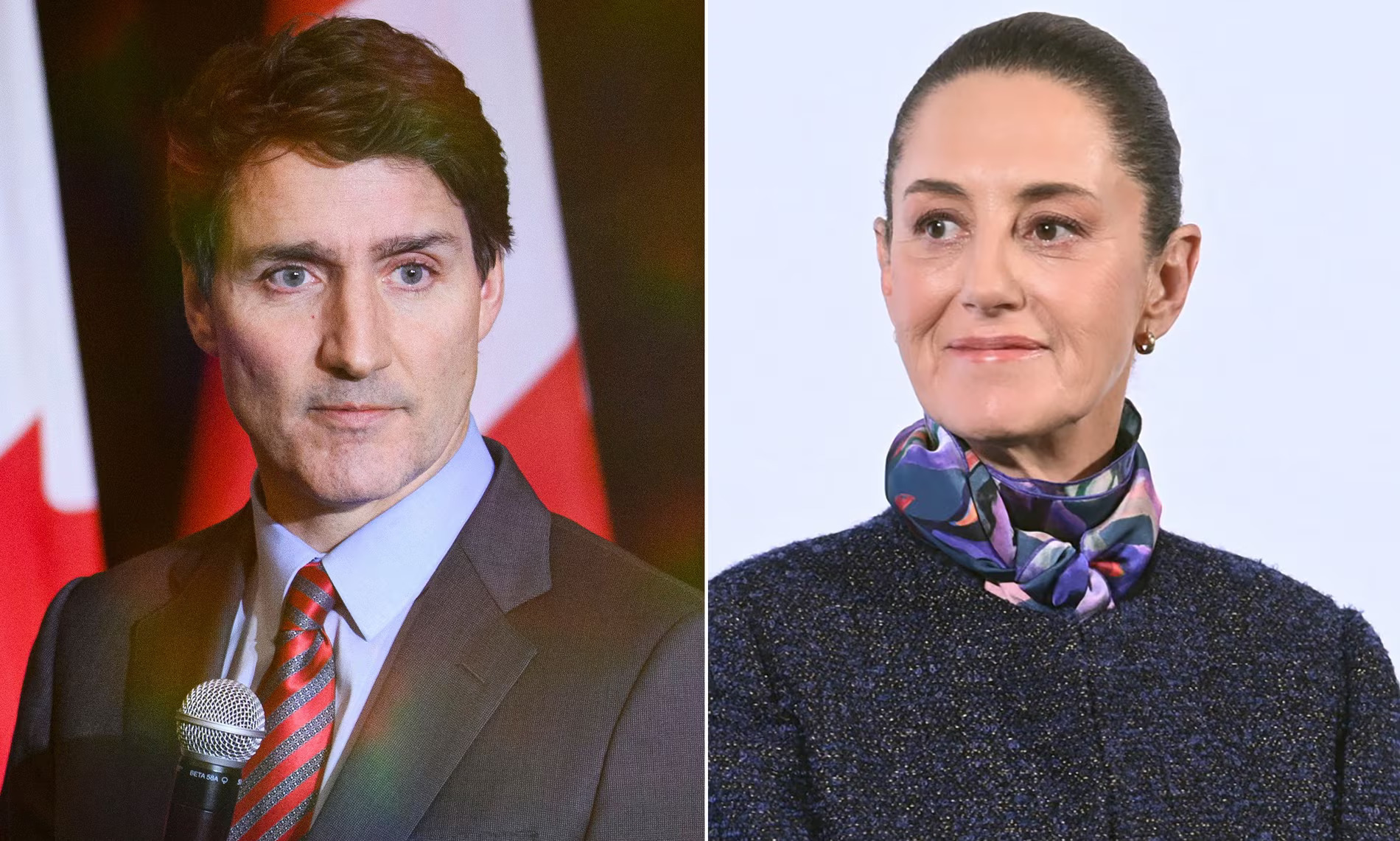Canada and Mexico have launched swift retaliatory measures after U.S. President Donald Trump signed an executive order imposing steep tariffs of up to 25% on their exports to the United States. The move has escalated trade tensions between the U.S. and its North American neighbors, with China also joining the fray by threatening to lodge a formal complaint with the World Trade Organization (WTO).
“Tariffs against Canada will put American jobs at risk, potentially shutting down auto assembly plants and other manufacturing facilities,” Trudeau said. “They will raise costs for you, including food at the grocery store and gas at the pump. They will impede your access to an affordable supply of vital goods crucial for U.S. security, such as nickel, potash, uranium, steel, and aluminum.”
Trudeau also criticized Trump for violating the United States-Mexico-Canada Agreement (USMCA), a trade deal negotiated during Trump’s first term to replace the North American Free Trade Agreement (NAFTA). “They will violate the free trade agreement that the president and I, along with our Mexican partner, negotiated and signed a few years ago,” he said.
Mexican President Claudia Sheinbaum echoed Trudeau’s defiance, vowing to implement tariff and non-tariff measures to protect her country’s interests. Speaking at an event shortly after Trump’s announcement, Sheinbaum emphasized the need for a measured response.
“When we negotiate with other nations, we always do so with our heads held high, never with our heads down,” she said. In a statement on social media, Sheinbaum rejected Trump’s allegations that the Mexican government was complicit with drug cartels, calling the claims “slander.”
She proposed forming a joint task force with the U.S. to address security and migration issues, stating, “Problems are not resolved by imposing tariffs.”
China also condemned Trump’s tariffs, with its commerce ministry calling the measures a “serious violation” of WTO rules. Beijing urged the U.S. to engage in dialogue and cooperation rather than unilateral actions.
“Fentanyl is America’s problem,” China’s foreign ministry said, refuting Trump’s claims that Chinese drug precursors were fueling the U.S. opioid crisis. “The Chinese side has carried out extensive anti-narcotics cooperation with the United States and achieved remarkable results.”
Trump’s tariffs, which include a 10% duty on Canadian oil exports and Chinese goods, have sparked fears of a global trade war that could disrupt supply chains, raise consumer prices, and slow economic growth. Economists warn that the measures could have severe repercussions, particularly for Mexico, where exports account for 40% of GDP.
“The Mexican economy could enter a severe recession if the tariffs are maintained,” said Gabriela Siller, director of economic analysis at Grupo Financiero Base.
In the U.S., critics have slammed the tariffs as a tax on American families. Washington Senator Patty Murray tweeted, “Trump’s tariffs will cost families – literally. It’s not Mexico or Canada or China who pays for these increases, it’s you.”
Colorado Governor Jared Polis echoed the sentiment, calling the tariffs “a tax on Coloradans and American families” that would increase the cost of everything from food to gas.
Trump’s Justification
Trump defended his actions, citing the need to protect Americans from illegal drugs and immigration. In a post on Truth Social, he wrote, “I made a promise on my campaign to stop the flood of illegal aliens and drugs from pouring across our borders, and Americans overwhelmingly voted in favor of it.”
The president also claimed that tariffs would not cause inflation but instead bring “success” to the U.S. economy. However, the Tax Foundation, a conservative think tank, estimated that Trump’s previous tariffs in 2018 and 2019 amounted to one of the largest tax increases in decades.
As the trade dispute intensifies, the global economy faces significant uncertainty. Trudeau urged Canadians to support domestic industries by choosing Canadian products and services over American ones. “We didn’t ask for this, but we will not back down,” he said.
With Canada, Mexico, and China all vowing to resist Trump’s measures, the stage is set for a prolonged and potentially damaging trade conflict that could reshape global economic relations.

